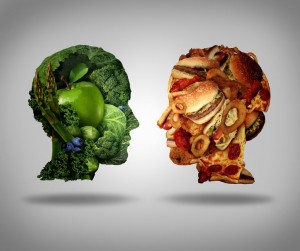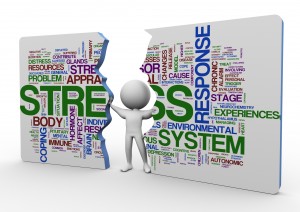Dietary and lifestyle advice to support energy levels and promote proper sleep
One of the most common complaints we hear from our clients are feeling fatigued and tired all the time. Often this tiredness prevents people from properly addressing their diets and lifestyle, and is one of the first areas we look to address before digging deeper into other symptoms.
Other than lack of sleep, chronic tiredness can be caused by a number of things. Many of which can be tested for such as low thyroid activity, nutritional deficiencies or liver detoxification issues. But a starting point is to support the adrenal glands that are in charge of our stress hormones.
Our adrenal glands can get tired too!
Our adrenal glands release hormones that regulate sugar levels in the body and help us react to stress effectively. However, if under chronic stress over a long period, both through a stressful or emotional environment and through suboptimal diet and lifestyle choices, the adrenal glands can become overworked. Symptoms of this are associated with anxiety and irritability.
Over time the adrenals can become so overworked that they eventually are no longer able to function efficiently. This is known as adrenal dysregulation when the body can no longer react properly to stress and we feel exhausted all the time.
Your body reacts in the same way to diet as it does to external stress. When your blood sugar dips (often a rebound from blood sugar highs), it promotes the release of adrenal hormones. Stimulants such as caffeine, alcohol and nicotine cause the same reaction. This spikes sugar levels that then come crashing down once the effect has worn off.
It is usually a combination of sugar deregulation in the body combined with external stressors that pushes the adrenal glands too hard. This in turn whacks out other hormones creating symptoms of hormonal imbalance such as PMS.
The first step toward supporting the adrenal glands is to balance blood sugar levels in the body. The goal is to take the load off the adrenal glands, giving them a chance to rest and recuperate. Lifestyle also plays a crucial role. We cannot remove stress from our environment but we are in charge of how we react to events and this has a direct impact on the function of our adrenals.
 Here are our top tips for supporting the adrenal glands:
Here are our top tips for supporting the adrenal glands:
Lifestyle
- Epsom salts, from chemists or health food shops, are great to use in a bath. Add 2 cups to a warm bath and soak for at least 20 minutes. This is a great way relax and ‘switch off’ the adrenals.
- Increase outdoor activities such as brisk walking, jogging, or simply sitting out in nature. Ideally try to get out of the house in the morning. Exposure to sun (or at least daylight) soon after we wake helps set the body’s internal wake/sleep cycle. Daylight stimulates our production of serotonin. Serotonin is then converted to melatonin (our sleep hormone) in darkness that helps ensure a good nights sleep.
- Keep rooms dark at night. For actual sleeping, eye masks are one of the best options as they black out all light including those emitted from phones, alarm clocks and street lighting.
- Listen to calming/meditating apps daily. We frequently suggest ‘calm’ as it is easy to follow and has some excellent short guided meditations, but it really is a question of finding one that works for you or doing your own guided meditations daily.
Dietary Recommendations:
The key with diet is to keep internal sugar levels as regulated as possible. We have written more about that here but essentially:
- Be selective about which carbs you are eating. Focus on whole-grains that release their sugar more slowly. Fat and protein further lesson the effect carbohydrates have on blood sugar levels so always combine fat/protein with carbohydrates. For example having some nuts or seeds with fruit, yogurt with berries, an egg with bread or crackers with bean dips or nut butter rather than biscuits for a snack.
- Eat smaller portions but more regularly. Always have breakfast, lunch and dinner and have a snack containing protein mid-morning and mid-afternoon. This way you’ll provide your body with a constant supply of fuel to help balance your energy levels.
- To make meals well balanced, protein should make up a quarter of your plate, starchy carbs (rice, potatoes, pasta, bread) no more than a quarter of the plate and the other half of the plate should be nutrient dense vegetables or salad.
- If you are prone to anxiety and feeling stressed, the worst thing is to consume lots of caffeine. Coffee is the worst as it contains the most caffeine. There’s also some in tea, but tea is more calming due to the presence of an amino acid theanine, but you still don’t want to overdo it and definitely pass on adding sugar! Green tea has nutrients that are great for supporting the adrenals so is a better option.
Following these steps can really help to support energy levels and aid proper sleep. Often these alone can rectify the problem but sometimes we also recommend herbs, known as adaptogens, that can bring energy up if you’re feeling whacked out but can also calm the system if you’re feeling tired but wired. Click here to find out the best herbs to use.
 We hope you enjoy this blog post, let us know your thoughts in the comments below or on social media – we’re on Twitter, Facebook, Instagram and Pinterest. And don’t forget to sign up to our newsletter to receive a monthly update of our articles, recipes, nutrition tips and expert advice.
We hope you enjoy this blog post, let us know your thoughts in the comments below or on social media – we’re on Twitter, Facebook, Instagram and Pinterest. And don’t forget to sign up to our newsletter to receive a monthly update of our articles, recipes, nutrition tips and expert advice.





